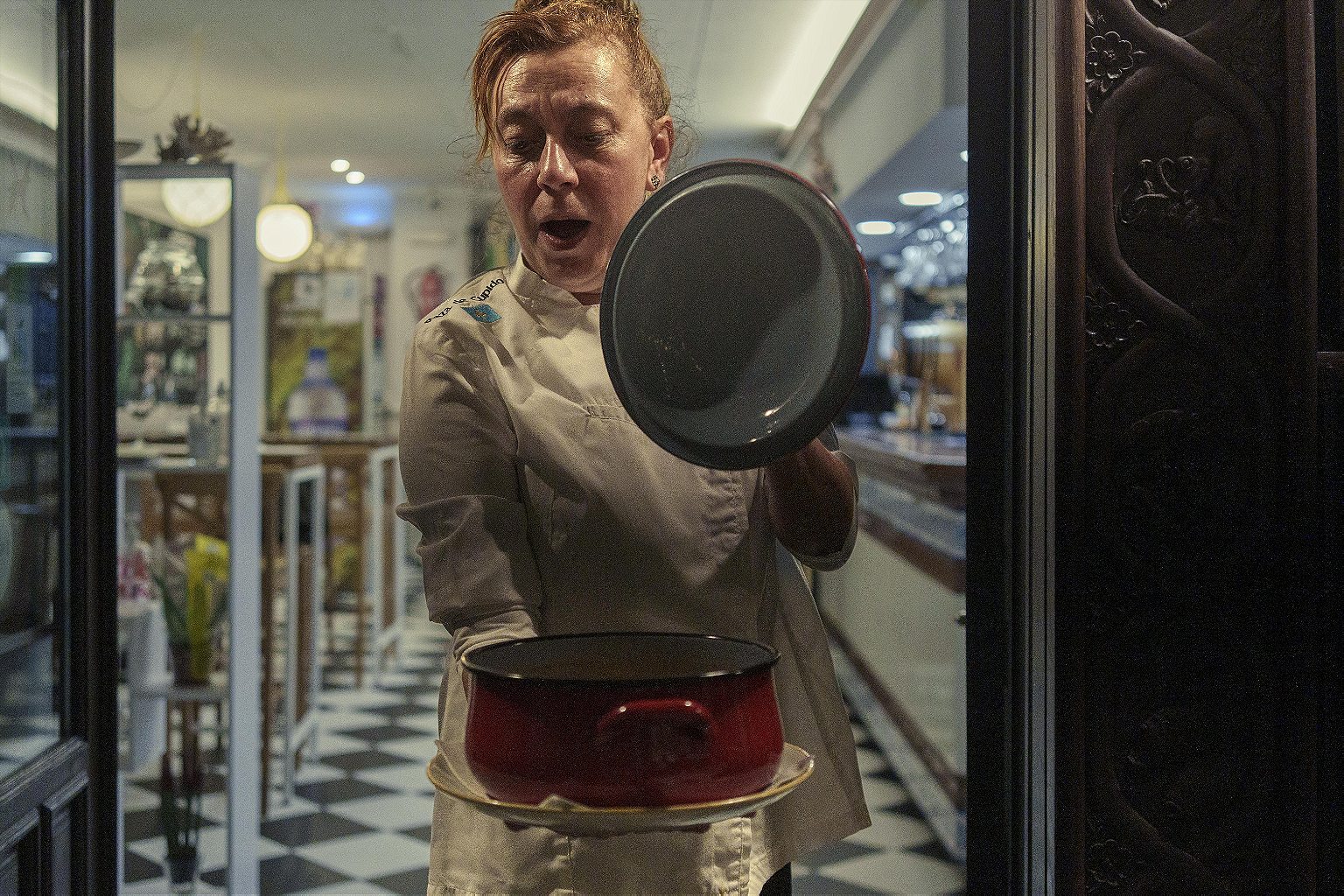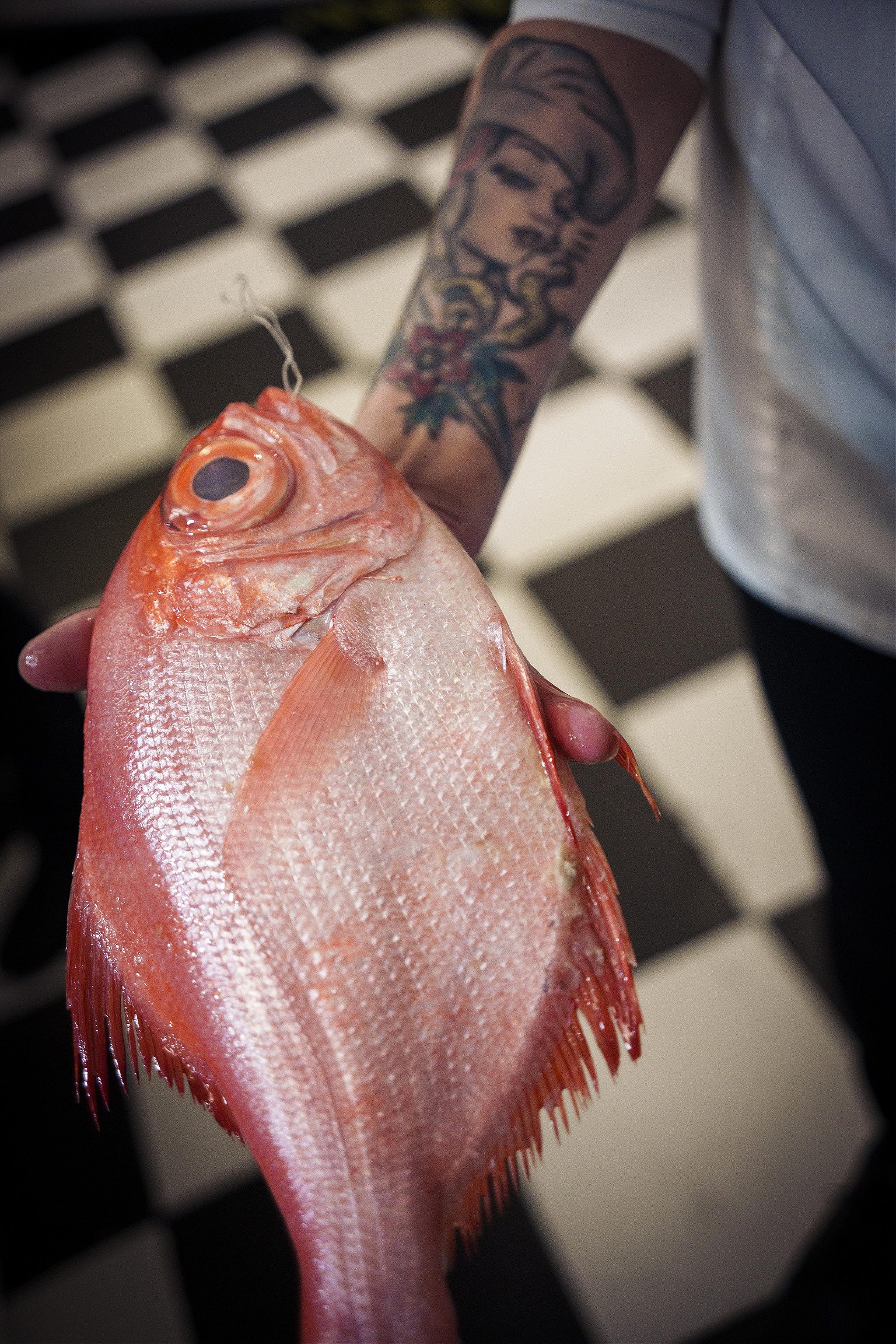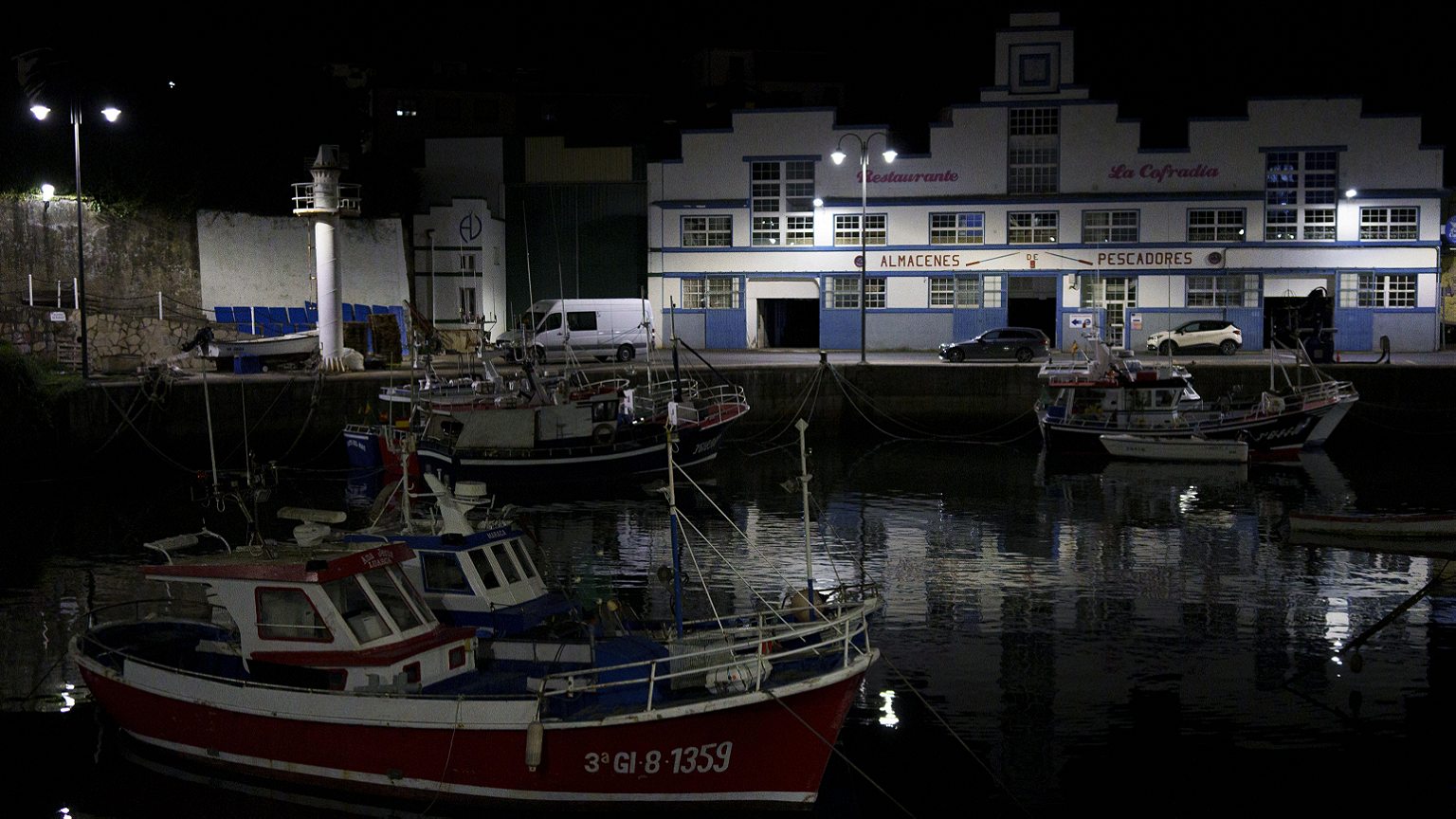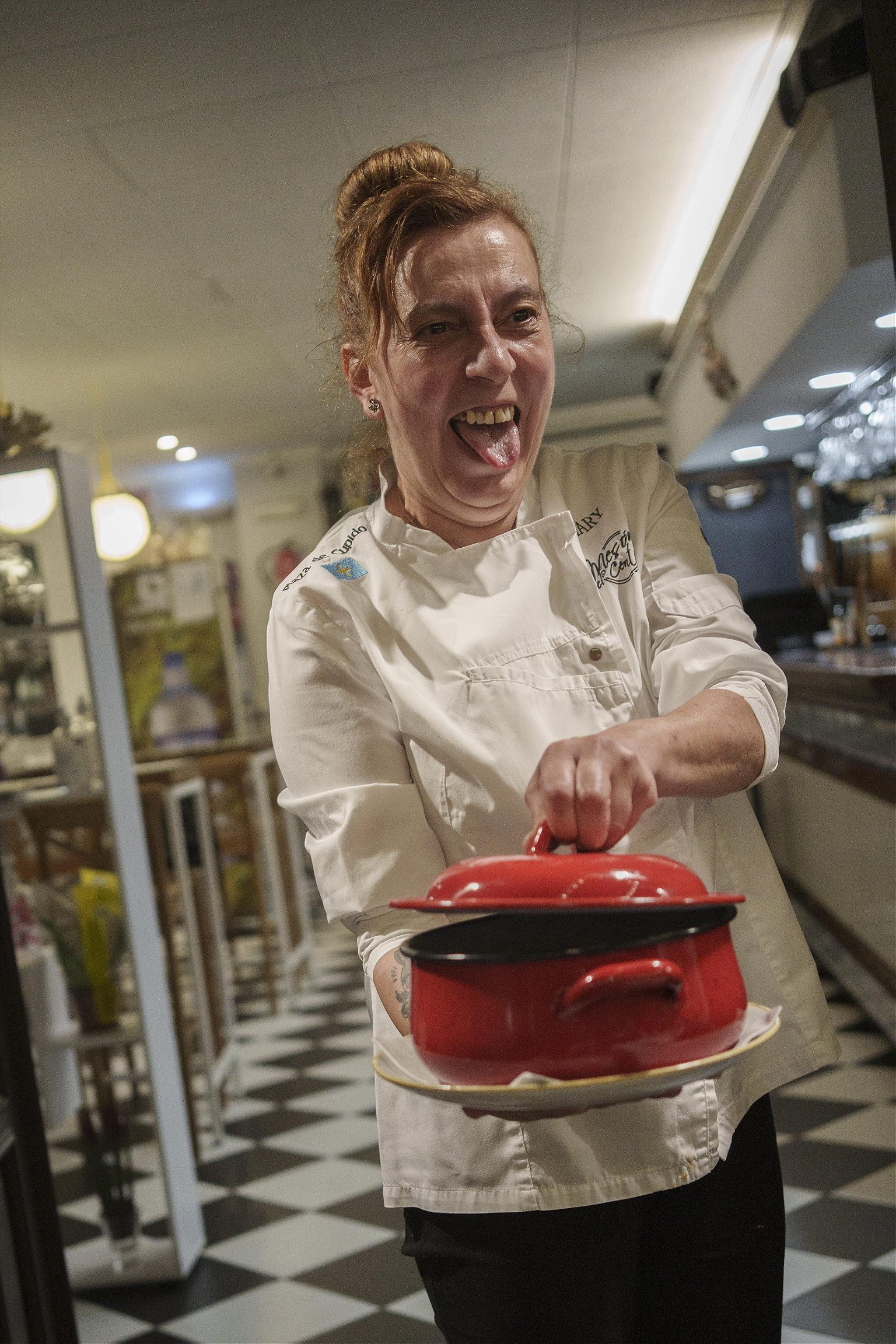On Spain’s Asturian coast, in the small fishing town of Puerto de Vega, on Plaza Cupido—Cupid Square—a self-taught cook writes culinary love letters to the Cantabrian Sea.
On the northern coast of Spain, where misty mountains slope down toward the Cantabrian Sea, there is a port town of uncommon simplicity and beauty. A fleet of fishing boats painted firetruck red and forest green unload their catch every morning at the rula, the commercial fish market that anchors the port. The buyers—think gruff men in Members Only jackets—eye the fish from the auction floor or from the balcony above it, make their bids using handheld clickers, and then truck the fish to restaurants around Asturias.
Some of that fish never gets on a truck, never meets a middleman. Instead, it is carried by fishermen up a steep hill with stone streets to an unassuming restaurant called Mesón el Centro. And there it is delivered into the hands of a self-taught chef named María Antonia Fernández—Mari to all who know her—whose gales of laughter and restless spirit seem to match the energy of the wild Cantabrian Sea below.
In the years since we started coming to Asturias with the League of Travelers, Mari has been our tireless culinary guide through the bounty of Puerto de Vega. Journalist María Elizondo spoke with her by phone recently to learn more about her life at the edge of the sea.
This interview has been edited and condensed for clarity.
Roads & Kingdoms: How did you end up owning a restaurant?
María Antonia Fernández: It was totally circumstantial. My husband was suddenly out of a job, and we had a two-year-old then. So we said: Ok, let’s take up this bar, for now… And “for now” turned into 33 years.
R&K: And how did you learn to cook?
Fernández: I always say I’m not a cook. I’ve been here 30 years, but I didn’t know anything about food. I didn’t study cooking; I didn’t work as a cook for anybody. I’m a cook, but out of sheer determination.
If I know how to cook it’s because I strive to recreate memories… Or find memories, my childhood memories. I want my food to taste like things that we used to have before.
Like a tomato, for example, a tomato that has never seen a fridge, I try to recreate those flavors, a real tomato like when we were little.
Or an oyster, an oyster that reminds you of being thrown around by a wave in the Cantabrian Sea. The taste of that water you swallow, that’s the feeling I’m striving for when I cook.
R&K: So you taught yourself how to cook but you must have had influences at home
Fernández: No, no, my father was a carpenter and my mother worked helping him.
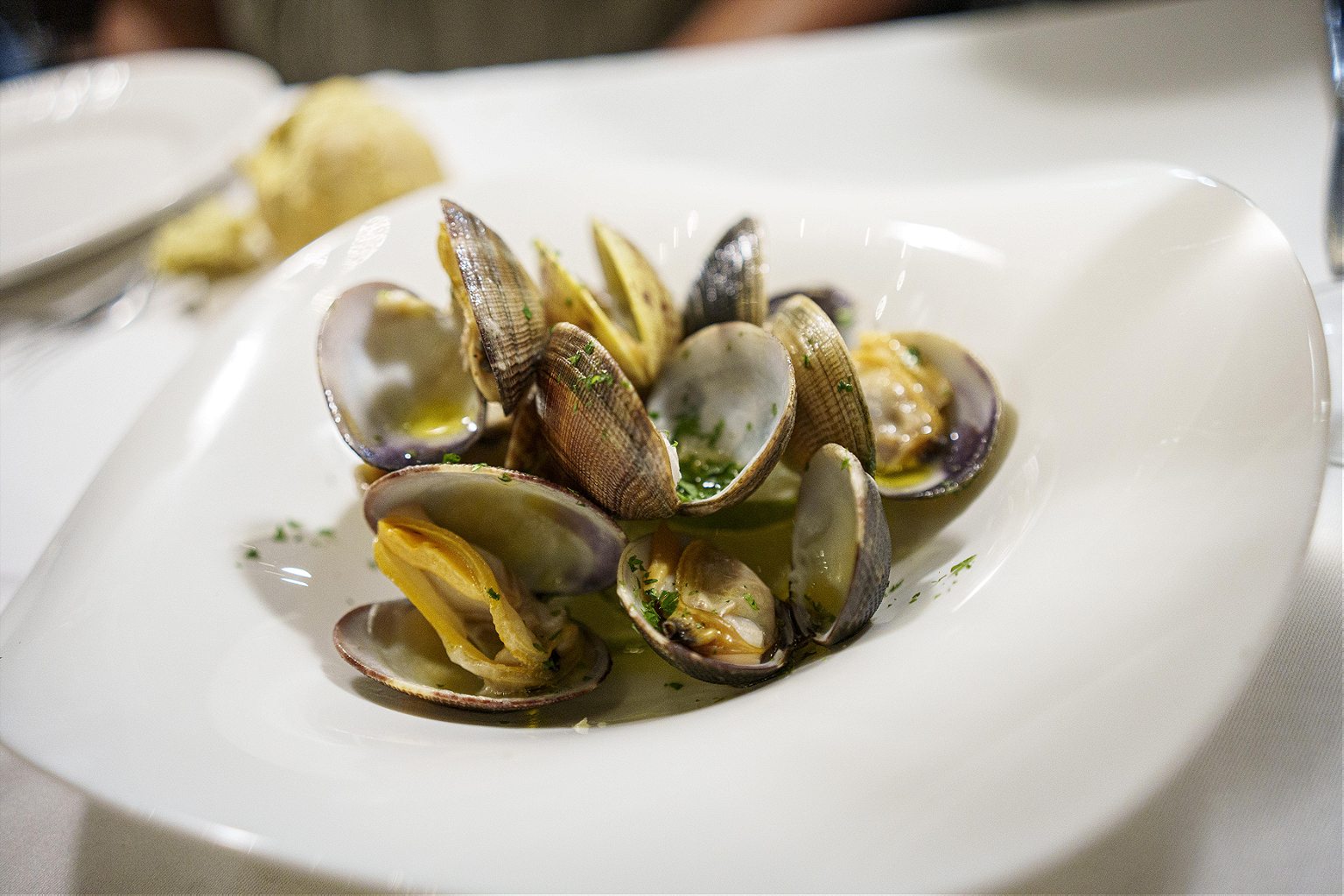
R&K: Your husband Mon (José Ramón Pérez) oversees the dining room and wines, is your daughter working with you as well?
Fernández: She is. She grew up at the restaurant, atop the freezer. I called her a freezer baby. We would get an order of croquetas and I would say: An order of croquetas! and add another one for the kid!
When she grew up, I wanted her to find another job, a Monday to Friday job with summer vacations and all of that, but even though I was telling her that, I guess I was showing her the opposite… Because I adore cooking, I love it.
I say cooking is like the number Pi. It is infinite: the day you learn something, that’s the day you also learn you know nothing… So even though she studied other things, she stayed.
She now works my grill, and she has a riskier approach to cooking than I do. She’s young, she’s not afraid.
Me, I am still in disbelief at the recognition I’ve gotten: the Michelin’s Bib Gourmand, the Sol Repsol, I’m also a member of the Club de Guisanderas [an all-female collective of top traditional chefs of Asturias]… I sometimes don’t believe it, I don’t want to change anything in my cooking, lest they take all of those away.
Cooking is like the number Pi. It is infinite: the day you learn something, that’s the day you also learn you know nothing.
R&K: Have you always been here in Puerto de Vega?
Fernández: I have always been here. I am the third of three siblings, so by the time I was born my parents didn’t mind much. I spent my childhood amongst the rocks, fishing with my dad, I would be the type to return all wet because I would fall into the sea. This is such a small town, around 1,000 inhabitants, and back then there was no tourism, so we grew up running on the streets. We would be at the rocks, by the sea…
When I cook, I do try to transmit my childhood, my smells and my tastes or those memories I have from when I was a child. In the end you try to transmit the flavor of the sea, the smell of the sea, the smell of the Cantabrian Sea.
The Cantabrian Sea is a rough sea, and that’s what’s good about it, the fish and shellfish here are the equivalent to an Ibérico Pig. The sea is rough, and the fish and shellfish must fight their way through. It’s the same with an Ibérico, it’s so different than a pig raised indoors. Ibérico has so much more taste, so much more potency of flavor.
R&K: When you travel do you like go to other seas? Where do you like to go?
Fernández: I love to travel and get lost, I also love to go to the south of Spain, to its sea. It is very different, a very different smell and a very different taste. I like the southern sea. When I include tastes from the south in my menu they blend very well together with the northern tastes, in the end, all those flavors are Spain.
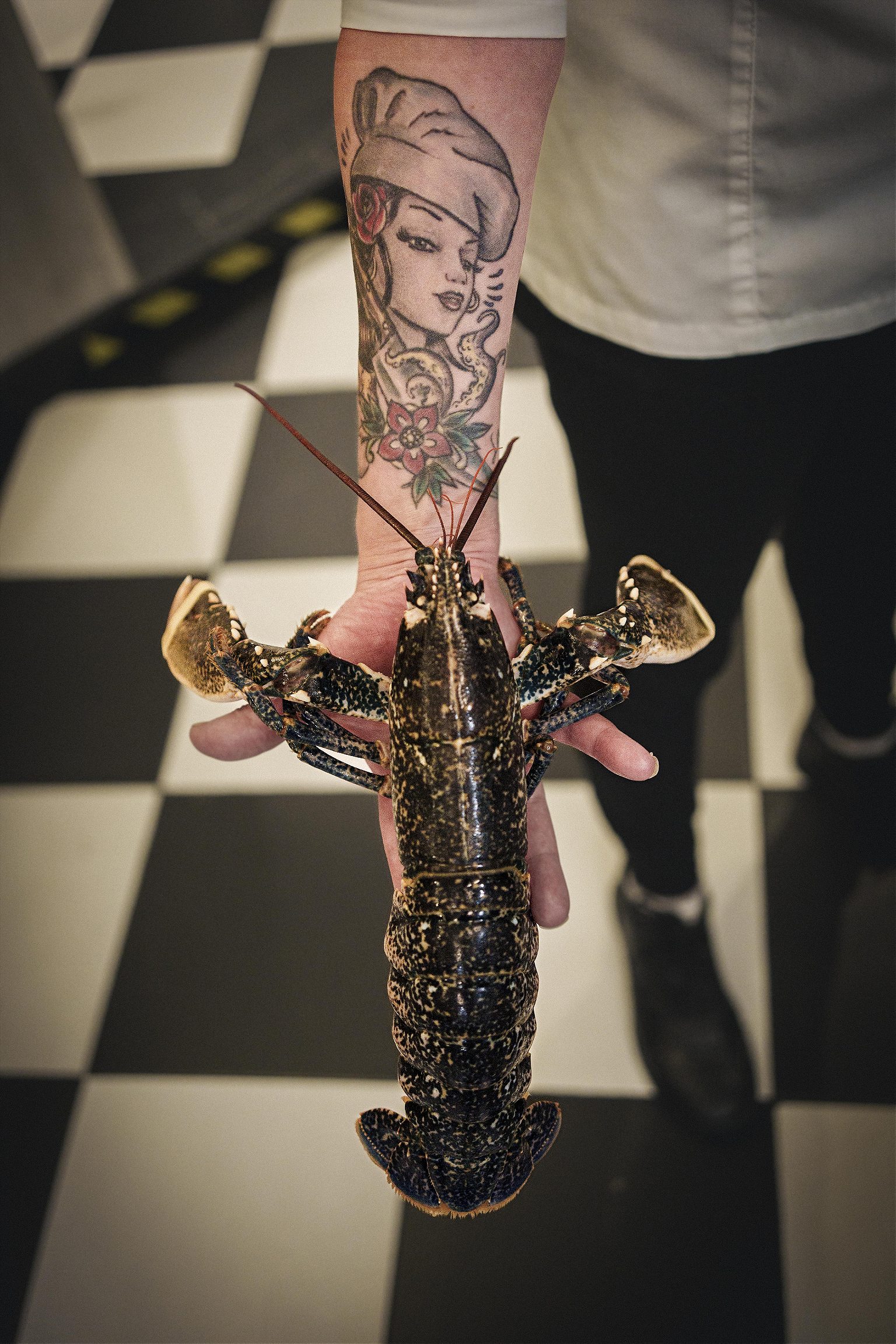
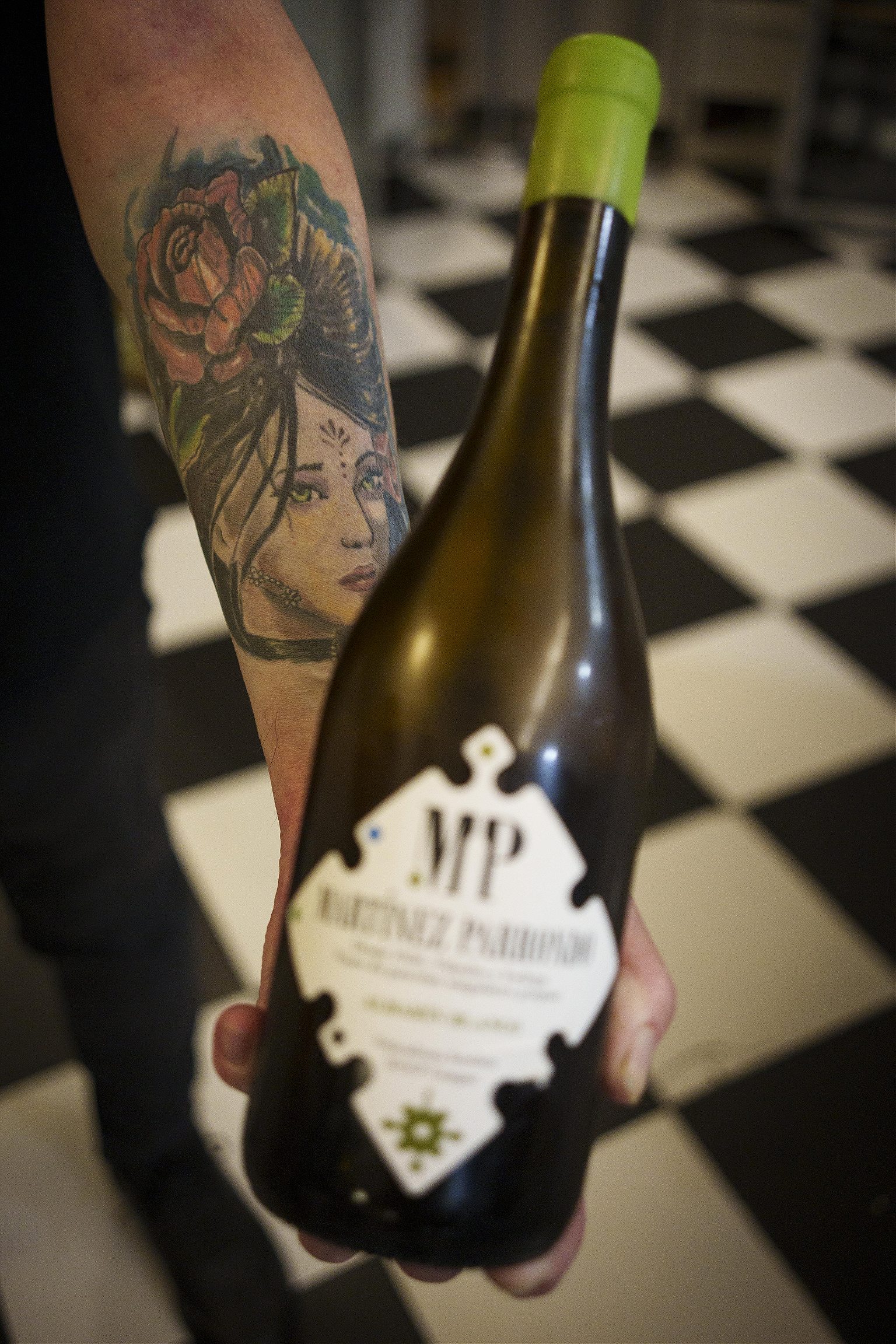
R&K: What is your relationship with the fishermen like? Are you friends?
Fernández: Yes, it’s been thirty years, they’re friends, and they’re clients.
We’ll talk while they’re still at sea, they’ll tell me what they’ve caught: “we have turbot, we have this or the other”, I tell them to save this or that for me.
R&K: And do you pick the catch up or they’ll deliver?
Fernández: They deliver the live fish straight to me.
R&K: And then? What do you do with the live fish?
Fernández: Sometimes I hide the fish in the back, because if the diners see them, they’ll want them straight away, but the fish are better a day later.
R&K: You said the fishermen are also your clients?
Fernández: Yes, and what’s beautiful about that is that they teach you and at the same time you teach them. There is, for example, the codium algae that we have a lot of and that, more than an algae, tastes like the water from percebes. So to tell them: close your eyes and taste this… even though they’ve seen it all their lives… but never tasted it before. Those experiences are great.
The Cantabrian is a rough sea, and that’s what’s good about it.
R&K: What’s your favorite Asturian dish?
Fernández: The hake, no? She is my princess. Everyone is pushing hake, from here there and everywhere, but the hake from the Cantabrian, on a skewer, she is a true princess.
R&K: Are there any particular meals you remember cooking that were meaningful to you?
Fernández: There have been many, many. Definitely when you guys [from the League of Travelers] come, because I always have a great time. But any tables that allow me to express my cuisine are memorable. It’s just that I’m so bad at talking… I really try to express myself through the plate.
R&K: Do you travel to eat?
Fernández: I love to eat. It’s just that I’m a disaster. I like McDonald’s, but I like Berasategui, I like Disfrutar, I like diverXo, I like everything. I go to all levels, I have no problem.
Mon and I, we are the perfect couple, we like to eat, we like to drink, that’s it. Simplicity. We love gastronomy, he loves the world of wines and champagnes. Sometimes we will be working and thinking about making restaurant reservations for when we close the day.
We don’t have a problem driving 600 kilometers to go eat, sit at a great table. We love the feeling of sitting around a table.
Sometimes people look surprised when at home setting a full table with tablecloth, a dish, another dish, all of it. I tell them: It’s all the same for me, to wash two dishes or six. I don’t care, the moments around the table are the most important moments.
The League of Travelers—Roads & Kingdoms’ new travel project for readers and other likeminded wanderers—is returning to Asturias and to Mesón el Centro from September 24-October 1, 2023. See trip itinerary for more details, including how to join.
